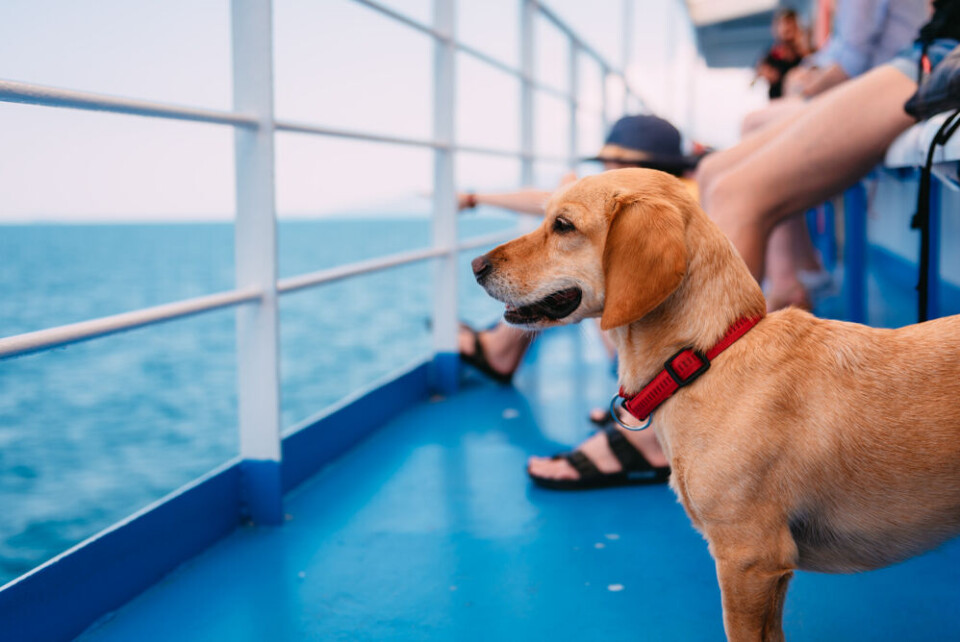-
Lost cat reunited with French family after 11 years thanks to identification tattoo
Tattoo helped shelter to find owners of the injured, elderly cat
-
I lost my cat from French home - then the scammers moved in
Connexion reader in south-west France raises the alarm about missing pets after her own disappeared this summer
-
Are new UK pet passports being introduced? Will they be accepted in France?
UK made easier pet travel one aim of talks earlier this year
Can I take my dog on a cross-channel UK-France ferry?
There are different regulations for taking animals on a ferry based on whether you are going from France to the UK or the UK to France

Reader question: We plan on regularly travelling between the UK and France by ferry with our dog. Are there any guidelines we should be aware of?
Almost all ferry companies and routes between the UK and France allow dogs and other small pets such as cats and ferrets.
To bring a pet onboard you will almost certainly have to be travelling by vehicle as few companies allow foot passengers on with their pets, although this does not mean that your pet must stay in the car for the duration of the trip.
Condor Ferries and DFDS Seaways from Newhaven to Dieppe seem to be the only current ferry companies and routes that allow foot passengers to bring a pet.
Since Brexit, the rules around pet travel have changed slightly but ferries along with the Eurotunnel remain the most convenient way to take pets between France and the UK.
Pet passports
Pets, in your case a dog, making the journey across the Channel need to have a pet passport.
If you live in France, you can obtain an EU pet passport from a licensed veterinarian, which is valid for the dog’s life as long as you keep up to date with its rabies vaccinations, which should be yearly.
This EU pet passport enables owners to take their pets anywhere in the EU. It is also valid for the UK.
It is possible that Britons with a long stay visa for France may also be able to get an EU pet passport.
Read more: Second-home owners in France to register travelling pets with I-CAD
Since leaving the EU the UK is now a ‘part 2’ listed country, meaning that UK vets are no longer allowed to issue an EU pet passport.
Instead, UK pet owners must get an Animal Health Certificate (AHC) from their vet. There is no set price for this so you can expect to pay at least £100 - £200, probably more. It is required for every trip to the EU.
Other conditions
Your dog must also be electronically chipped and have a valid rabies vaccination. It must be at least 12 weeks old.
Your dog can only travel 21 days after the vaccination, to make sure that it is immune. You should ensure that any further vaccinations are given before the validity period of the previous one has expired.
When travelling from France to the UK, you must also treat your dog for tapeworms less than five days and more than 24 hours before the trip (this does not apply to cats or ferrets).
Read more: Do I need deworming stamp on my pet passport for UK to France travel?
All this information must be clearly shown on the AHC or passport, including details such as date and time of vaccination or tapeworm treatment, product used and the vet’s stamp and signature.
Options for the journey
There are three main options for taking your dog on the ferry: leaving them in your car, in a pet-friendly cabin or in onboard kennels.
Leaving your pet in your car is the most common choice. Some companies charge a fee for any pet you bring with you while others do not.
Some ferries, for example P&O Ferries, also offer a pet lounge for an extra fee (often around £10-15). These usually include a seat for you and space to bring your pet’s bed, as well an exercise deck outside.
If you leave your dog in the car, remember to crack open the car windows, leave it water and make sure it has a comfortable bed.
Some ferries have extra requirements, such as needing to switch off any alarms in order to not startle the animals.
Pet-friendly cabins allow you to take your dog with you to a private area. The cost of these vary depending on the company and often need to be booked well in advance due to limited availability.
Finally, some ferries offer kennels for you to leave your dog during the trip. You will usually need to provide bedding and be able to visit them once or twice.
Whenever you are walking with your dog in the ferry, when going to and from the cabin or the kennels, your dog will need to be on a lead and muzzled.
Read more
Confusion over EU pet passport rules costs British dog owner £500
























